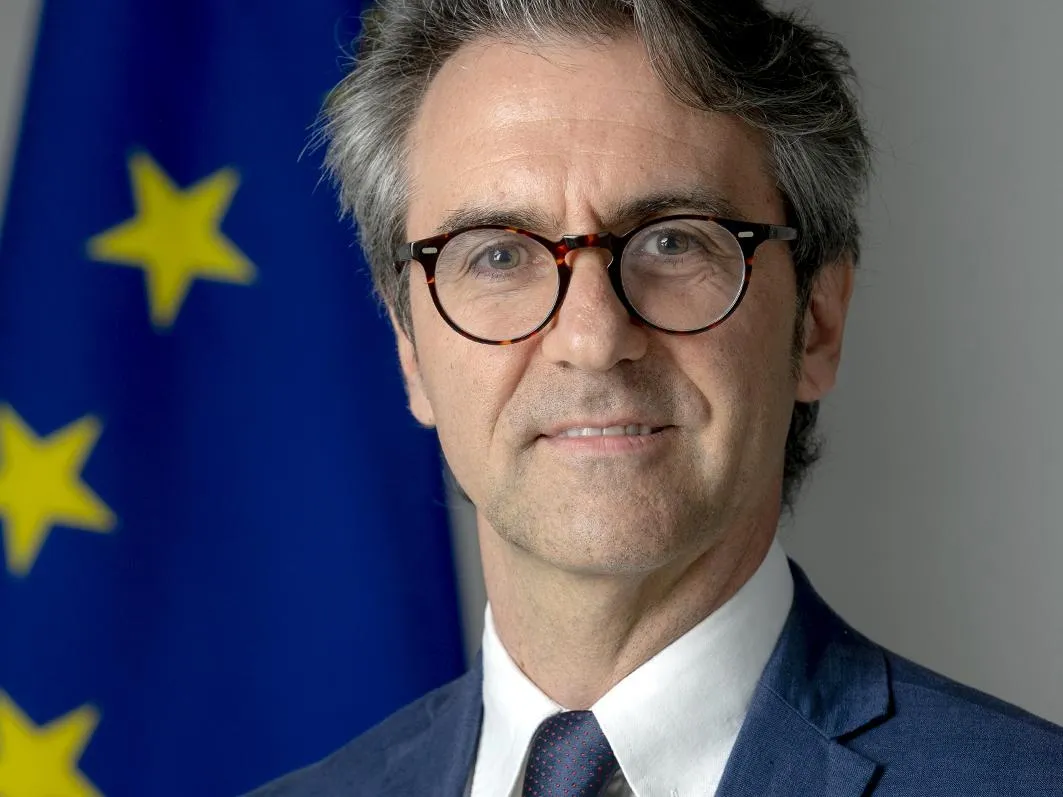
Interpreting the complexities of the world in the name of Europe
As ambassador of the European Union in Hanoi, Vietnam, after numerous diplomatic experiences around the world, Giorgio Aliberti has a privileged eye on how the role of diplomacy and the role of Europe as a political actor have evolved. Fifty-eight years of age, Aliberti was given the remit of taking care of EU relations with a country that has experienced remarkable development over the last thirty years, just like the whole Indo-Pacific area. A delicate task, which has its roots in his interest for international relations developed during his studies at Bocconi, where he graduated in Economics in 1991.
Has diplomacy always been on your mind?
Not immediately, but when, after graduating, I learned about the ISPI course to prepare for an international career, I decided to take that path. After a post-graduate experience at ENA in Paris, I began a journey that led me to do various experiences in Europe and around the world, but also in Italy. In fact, it is useful to be exposed to varied experiences abroad, but then have the possibility of bringing some of that experience back to your own country. My first role in diplomacy was at the Italian embassy in Nairobi, then I had the opportunity to join the policy unit of Javier Solana at the Council of the European Union, where I worked for three years, before returning to Rome. From there I moved to Washington, DC, where I was head of the political bureau of the embassy. Finally, I was appointed Italian ambassador to Myanmar, where I remained until 2018, and since 2019 I have held the position of ambassador, but for the European Union, to Vietnam.
What characteristics must an ambassador possess today?
You need mental agility, flexibility and an understanding of the complexities of the world. In this, it helps to have had diverse experiences. For example, my European experience was very formative, but so was my American experience, because it too gave me a different vision of the world: indeed, sometimes in Europe we tend to live as if we were inside a bubble, we have a very Eurocentric view. In the same way, it is very enriching to deal with the more complex realities of developing countries. From the point of view of experience, Italian and European diplomacy differ somehow from US diplomacy, where there is a tendency for a diplomat to concentrate on a single area and specialize in that.
You represent the European Union. How is the EU seen on the international stage?
In recent years, the role of the European Union as a global actor is increasingly acknowledged and Europe is increasingly considered as a homogeneous entity with which to enter into dialogue. In Asia, for example, there is the perception of the EU as an actor whose relevance is rapidly growing. So the time when the European Union was merely considered as a collection of smallish states is over. Today, Europe is seen as a very important partner, especially on trade and investment and on the ecological transition front. Less so, for defense and security.
What are the guidelines along which European diplomacy moves?
The bottom line is to combine the defense of European interests with the advancement of our values. Like human rights, for example. Human rights and environmental issues are the ones on which the EU is focusing the most. It is an appropriate choice, although not all our partners share it.
What role does Asia have for Europe?
From an economic point of view, Asia is a fundamental partner. On the one hand, there is China, with respect to which – as Ursula von der Leyen recently underscored – we must reduce the riskiness of Sino-European relations, but not cut ties; on the other, there is the whole Indo-Pacific area, which has grown immensely and become extremely important from a commercial and an economic point of view. For the prosperity of Europe, it is essential to have good relations with this area, an aspect that perhaps we Europeans have understood a little belatedly.
In a rapidly changing world, is the role of diplomacy also changing?
Today we are all called to deal with international issues, because with globalization they concern us more than in the past. The role of diplomacy has changed, but it remains crucial. Indeed, it is even more important than before to interpret complexity, and analyze the various situations with knowledge of the facts. Also, another thing is clear: even more than in the past, solid economic preparation is essential.